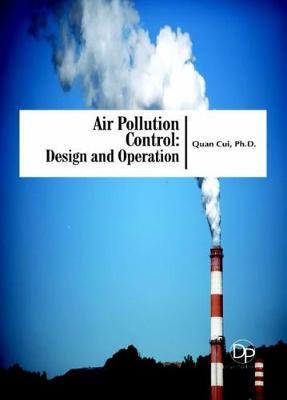Air pollution is about five decades or so old field and continues to be a global concern. Therefore, the regulatory bodies around the world are involved in managing air quality in their countries for the welfare of their citizens. The management of air pollution involves understanding air pollution sources, monitoring of contaminants, modeling air quality, performing laboratory experiments, the use of satellite images for quantifying air quality levels, indoor air pollution, and elimination of contaminants through control. An effective air pollution control system is essential in today's industrial landscape because of tightening compliance standards, increased enforcement, and heightened community pressure. Air pollution has always been a trans-boundary environmental problem and a matter of global concern for past many years. High concentrations of air pollutants due to numerous anthropogenic activities influence the air quality. Before the introduction of air quality regulations the use of air pollution control technology was to satisfy the requirements of good engineering practice. At present the purpose of applying and/or developing a control technology is to meet ambient air quality standards and other source related regulations. A control technology can only be applied to a controllable source. The emissions of air pollutants, such as sulfur oxides (SOx), nitrogen oxides (NOx), volatile organic compounds (VOCs), carbon monoxide (CO), particulates, toxic metals, chlorofluorocarbons (CFCs) and ground-level ozone, have significant effects on human health and natural ecosystems. Therefore, there has been increasing research interests in reducing the production and emission of air pollutants to improve air quality. Research in this field has focused on the identification, quantification and modeling of pollutions. The key research subjects in air pollution include the transformation of pollutants, the methodologies of reducing emissions and the modelling of pollutants' mitigation.
Air Pollution Control: Design and Operation provides contemporary information and present a reasonable analysis of air quality contributed by conversant professionals in the field of air pollution. In this book, articles regarding various research subjects in air pollution control are provided. These research subjects are given as follows: research and demonstrations of pollution control cost-effective analysis; adjusting management method to reduce pollutants' peak emission; modelling of the effects of air pollutants; methods for air pollutant degradation. This book fulfills the essentials on the latest concepts of air pollution science and provides comprehensive information on all relevant components relating to air pollution issues in urban areas and industries. It is suitable for advanced graduate students, professionals in environment science and researchers who wish to follow application of the theory in practice in air pollution. A perceptive of the connection between sources and control of air pollution is emphasized.
- ISBN13 9781680958379
- Publish Date 30 November 2016
- Publish Status Active
- Publish Country CA
- Imprint Delve Publishing
- Format Hardcover
- Pages 268
- Language English
